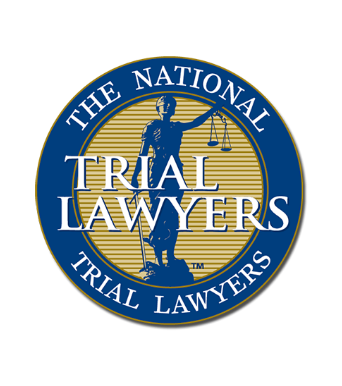Pikesville, MD Birth Injury Lawyer
Birth injuries can be suffered by both newborns and their mothers during the birthing process. Some different examples of birth injuries suffered by newborns include brachial plexus injuries (Erb’s palsy), fractures, and cerebral palsy. Meanwhile, examples of birth injuries suffered by mothers include perineal tears, uterine rupture, and pelvic floor injuries.
Unfortunately, a high number of birth injuries occur as the result of negligent actions exhibited by medical professionals. Victims may be able to recover compensation for the harm they endured by suing at-fault parties. However, there are several key elements that must be established in order for their cases to succeed.
Get help from our experienced birth injury lawyers at Rice, Murtha & Psoras by calling (410) 694-7291 for a free case review.
Common Types of Birth Injuries that Occur in Pikesville, MD
There are several different types of birth injuries that can be suffered by newborns and their mothers. Fortunately, our birth injury attorneys can help plaintiffs recover payment related to any of the following forms of harm:
Brachial Plexus Injuries (Erb’s Palsy)
Brachial plexus injuries occur when the nerves that control the movement and sensation in the arms are damaged during childbirth. Symptoms may include weakness or paralysis in the affected arm, lack of muscle control, and limited range of motion. Treatment for mild cases may involve physical therapy, while severe injuries may require surgery to repair the damaged nerves.
Fractures
Newborns can suffer bone fractures during the birthing process, most commonly in the collarbone (clavicle) or the arm. Symptoms may include swelling, bruising, and limited movement in the affected area. Treatment typically involves immobilization of the fractured bone with splints or casts to allow for proper healing.
Cerebral Palsy
Cerebral palsy is a group of disorders that affect a person’s ability to move and maintain balance and posture. It can result from brain damage or abnormalities during childbirth. Symptoms can vary widely and may include muscle stiffness, poor coordination, and difficulty with speech and swallowing. Treatment for cerebral palsy often involves physical therapy, occupational therapy, and sometimes medication to manage symptoms.
Perineal Tears
Perineal tears are common birth injuries that occur in the area between the vagina and anus during vaginal delivery. The severity of tears can range from mild to severe. Symptoms may include pain, swelling, and discomfort in the perineal area. Treatment involves suturing the tears and keeping the area clean to prevent infection.
Uterine Rupture
Uterine rupture is a rare but serious birth injury that involves the tearing of the uterus during labor. It can be life-threatening for both the mother and the baby. Symptoms may include severe abdominal pain, rapid heart rate, and vaginal bleeding. Immediate surgical intervention is necessary to repair the uterine tear and stop the bleeding.
Pelvic Floor Injuries
Pelvic floor injuries can occur during childbirth, particularly in cases of forceps or vacuum-assisted deliveries. These injuries may lead to problems such as urinary incontinence or pelvic organ prolapse. Symptoms can include difficulty controlling bladder or bowel movements and pelvic discomfort. Treatment options may include pelvic floor physical therapy, medication, or in severe cases, surgical repair.
Common Causes of Birth Injuries in Pikesville, MD
There are many forms of negligent behavior that can lead to birth injuries. For example, the following are all common causes of such injuries in Pikesville, MD:
Inadequate Prenatal Care
Medical professionals have a duty to provide comprehensive prenatal care to expectant mothers. Negligent behavior may include failure to identify and manage high-risk pregnancies, improper monitoring of fetal development, or failure to detect potential birth complications. Inadequate prenatal care can lead to undiagnosed medical conditions in the mother or the unborn child, resulting in preventable birth injuries.
Medication Errors
Medication errors during pregnancy, labor, or delivery can have serious consequences for both the mother and the baby. Negligent behavior in this context may involve incorrect dosages, administering the wrong medication, or failure to account for potential drug interactions. Medication errors can lead to adverse effects on fetal development or maternal health, potentially resulting in birth injuries.
Delayed or Incorrect Diagnoses
Prompt and accurate diagnoses are crucial during pregnancy and childbirth to address any potential risks or complications. Negligent behavior may involve misdiagnosing medical conditions in the mother or the baby, leading to delayed or inappropriate treatment. For instance, failure to diagnose conditions like gestational diabetes, preeclampsia, or fetal distress can result in birth injuries due to the lack of timely intervention.
Improper Use of Medical Devices
In some cases, medical devices such as forceps, vacuum extractors, or fetal monitors may be used during labor and delivery to assist with the birthing process. Negligent use of these devices can lead to birth injuries if they are improperly applied, used without proper training, or cause undue harm to the baby or the mother during childbirth.
Surgical Errors
Cesarean sections (C-sections) are common procedures performed to ensure a safe delivery for both the mother and the baby. Negligent surgical behavior during C-sections or other birthing surgeries can lead to serious complications, including infection, organ damage, or injuries to the baby during the delivery process.
Failure to Perform Timely Emergency Interventions
In certain high-risk situations, immediate emergency interventions may be required to safeguard the health of the mother or the baby. Negligent behavior may involve the failure to recognize the need for urgent medical attention or the delayed implementation of necessary interventions, leading to avoidable birth injuries.
Inadequate Postpartum Care
Postpartum care is essential to monitor the health of both the mother and the baby after delivery. Negligent behavior in this context may include discharging the mother or the baby prematurely without proper evaluation, overlooking signs of postpartum complications, or failing to provide appropriate medical follow-up care.
Call Our Birth Injury Lawyers for Help with Your Case in Pikesville, MD
If you suspect that you or your newborn suffered a birth injury as the result of someone else’s negligence, get help from our experienced birth injury lawyers by calling Rice, Murtha & Psoras at (410) 694-7291.













